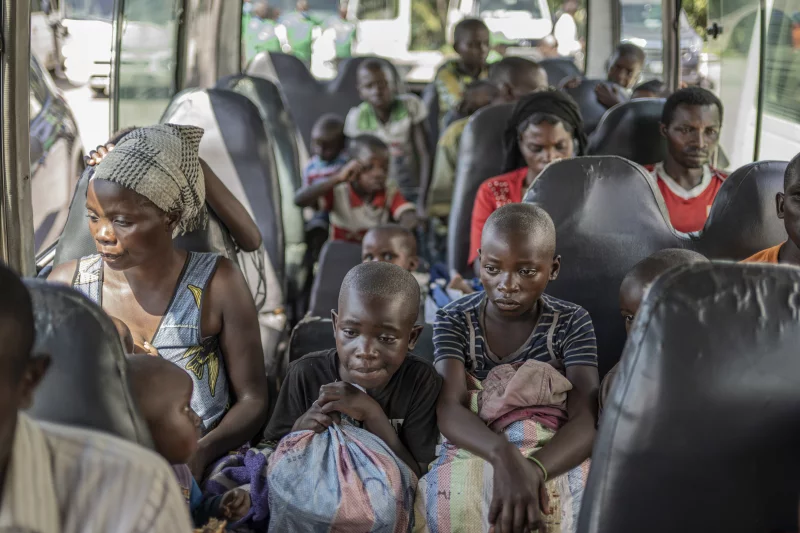Hundreds of Rwandan refugees who fled to eastern Congo in the wake of the 1994 genocide have returned home, the United Nations refugee agency (UNHCR) confirmed on Saturday. The repatriation comes amid increased instability in the region, where Rwandan-backed M23 rebels have recently gained control of key areas.
Most of the returnees were women and children. According to local authorities, 360 individuals crossed back into Rwanda in buses arranged by the Rwandan government, with escort and logistical support provided by UNHCR and Save the Children. The long-term goal is to repatriate approximately 2,000 people.
“We are pleased to welcome our compatriots. They are a vital asset for national development,” said Prosper Mulindwa, the mayor of Rubavu, during a reception ceremony held at the border.
Upon arrival, the returnees were taken to a transit center where they will receive immediate humanitarian aid and reintegration support.
These individuals are among the hundreds of thousands of Hutus who escaped Rwanda during the 1994 genocide, which killed up to a million people—mainly minority Tutsis and moderate Hutus. While many returned following Rwanda’s military incursion into Congo in 1996, thousands of ex-soldiers and militia fighters remained in Congo and were accused of working with local forces to destabilize Rwanda.
Eastern Congo has long suffered from chronic violence driven by competition over mineral resources and the presence of multiple armed groups, including the Rwanda-supported M23. According to UN experts, roughly 4,000 Rwandan troops are backing the rebel group, fueling the ongoing humanitarian crisis.
Among the returnees were individuals born in exile, many of whom had never seen Rwanda before. One of them, Nyirakajumba Twizere, born in Congo in 1996, expressed mixed emotions upon crossing the border.
“I never thought this day would come,” he said. “I’m finally returning to the land of my ancestors.”
The repatriation process is guided by a tripartite agreement involving Rwanda, Congo, and the UNHCR, which has been in effect for over a decade. Rwandan officials report that over 101,000 refugees have returned under this framework, including 1,500 since the beginning of 2025.

